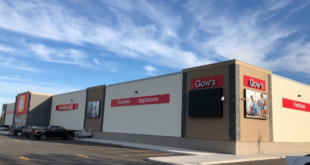In the past few weeks, a spate of confrontations at retail establishments has made clear the importance of training your team to de-escalate potentially hostile situations.
Helping employees at all levels calm customers and soothe situations can be a critical way to ensure operational stability. The National Retail Federation recently interviewed Dave Young, co-founder and director of Vistelar, a workplace training organization. Young has more than 30 years of experience in civilian and military law enforcement. Visit NRF.com to read his interview in full and share these tips with your staff to help ensure stability.
1. Calm situations before they get out of hand.
Young’s prevailing advice is to train your employees to reduce tensions with customers well before those interactions become heated. Vistelar trains retail employees to empathize with upset customers by seeing the situation from their perspective and by truly listening to their concerns.
“The best thing to do is never let it get to that point. And I want to add … that it’s everybody’s job. It’s not about training supervisors to put the fire out. It’s about training the entire staff on how to not have the fire in the first place,” Young says.
2. Offer options to shoppers, not ultimatums.
One of the most important things a retailer can do to de-escalate a tense situation is to present options to distressed customers. Referencing many states’ mandates that masks be worn in retail spaces, Young says it’s important to offer options when handling a delicate situation.
“Maybe we’ve got a whole rack full of masks, and I can let them have one on store credit. The thing is to let the person you’re dealing with choose,” he says.
3. Watch for signs of aggression.
Young trains retailers to be on the lookout for key indicators that a situation could turn violent. When someone breaches social distancing protocols, raises their voice, uses foul language or repeats a phrase, Young says the situation could be deteriorating.
“Even if you do everything right on the front end, you’re not responsible for how they translate it,” Young says. “I’ve had situations where I’ve been very kind and considerate, and nothing worked. At some point, it comes time to take appropriate action, which might mean to leave and immediately call the police.”
4. Training is key in tense times.
This year has seen a proliferation of tense encounters in retail spaces. Addressing those occurrences with your staff can put your entire team on the same page and handle any volatility promptly and professionally. Young says training on conflict resolution is an increasingly important part of retail success.
“The better trained your people are, the more the out-of-control situations are a rarity,” he says.
 Hardware Retailing The Industry's Source for Insights and Information
Hardware Retailing The Industry's Source for Insights and Information








